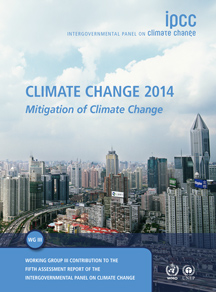The report says that only major institutional and technological interventions would give a chance to limit the increase in global mean temperature
GN Bureau | April 14, 2014

The much-awaited General Elections of 2024, billed as the world’s biggest festival of democracy, began on Friday with Phase 1 of polling in 102 Parliamentary Constituencies (the highest among all seven phases) in 21 States/ UTs and 92 Assembly Constituencies in the State Assembly Elections in Arunach
Fit In, Stand Out, Walk: Stories from a Pushed Away Hill By Shailini Sheth Amin Notion Press, Rs 399
The recent European Union (EU) policy on artificial intelligence (AI) will be a game-changer and likely to become the de-facto standard not only for the conduct of businesses but also for the way consumers think about AI tools. Governments across the globe have been grappling with the rapid rise of AI tool
The Indian Railways is celebrating 171 glorious years of its existence. Going back in time, the first train in India (and Asia) ran between Mumbai and Thane on April 16, 1853. It was flagged off from Boribunder (where CSMT stands today). As the years passed, the Great Indian Peninsula Railway which ran the
7 Chakras of Management: Wisdom from Indic Scriptures By Ashutosh Garg Rupa Publications, 282 pages, Rs 595
In a path-breaking initiative, the Election Commission of India (ECI), for the first time in a Lok Sabha Election, has provided the facility of home voting for the elderly and Persons with Disabilities in the 2024 Lok Sabha elections. Voters above 85 years of age and Persons with Disabilities (PwDs) with 4